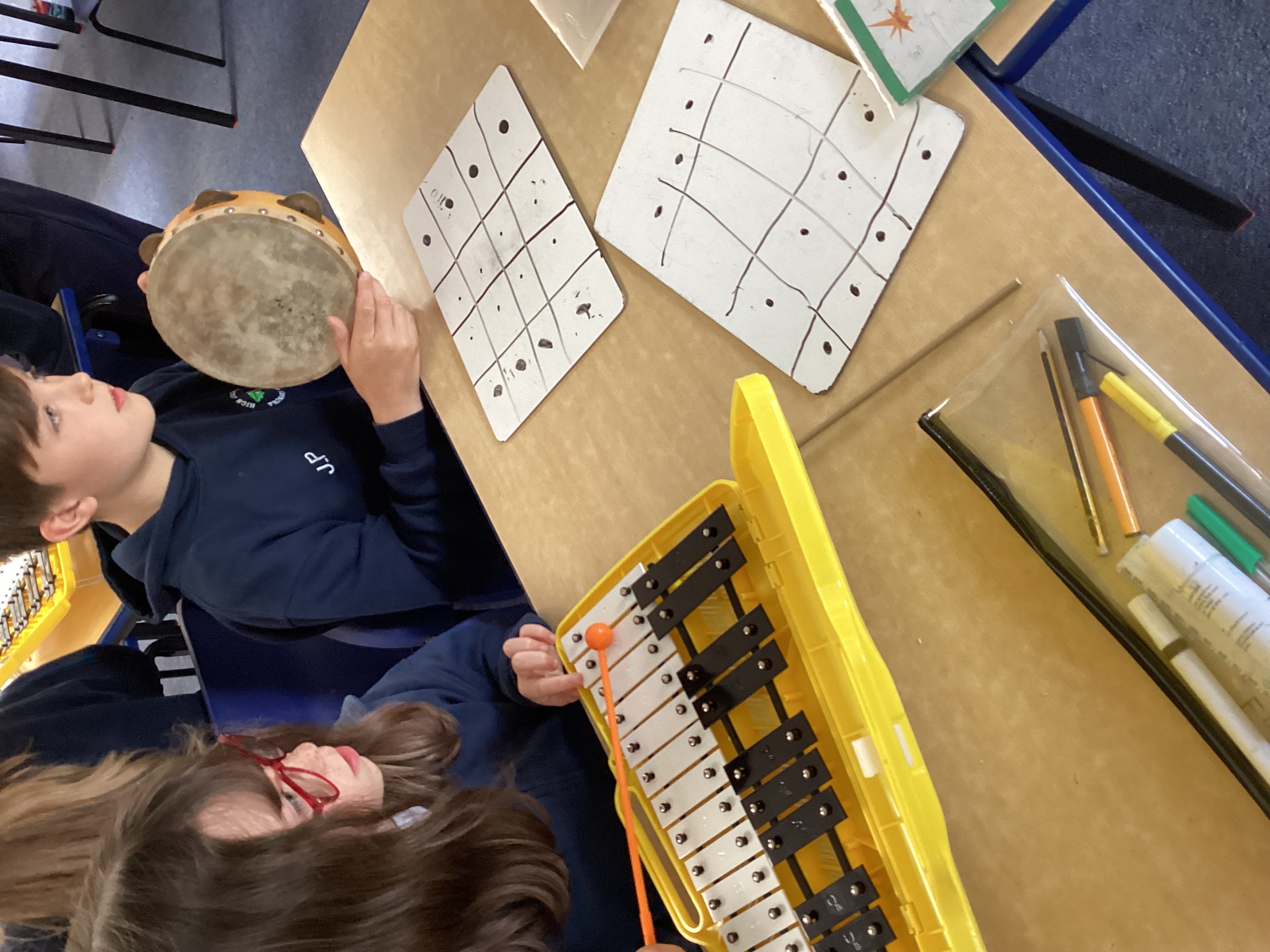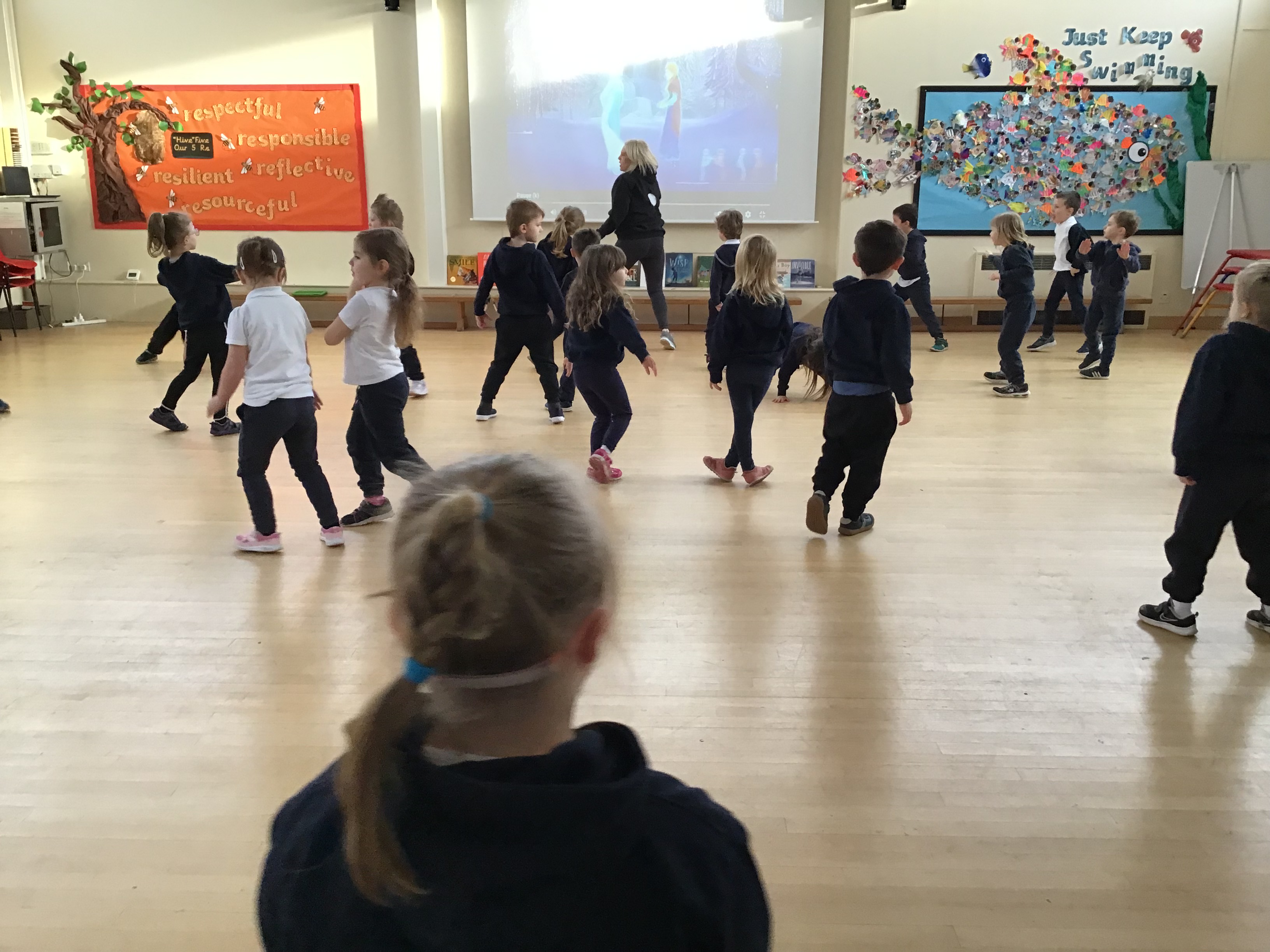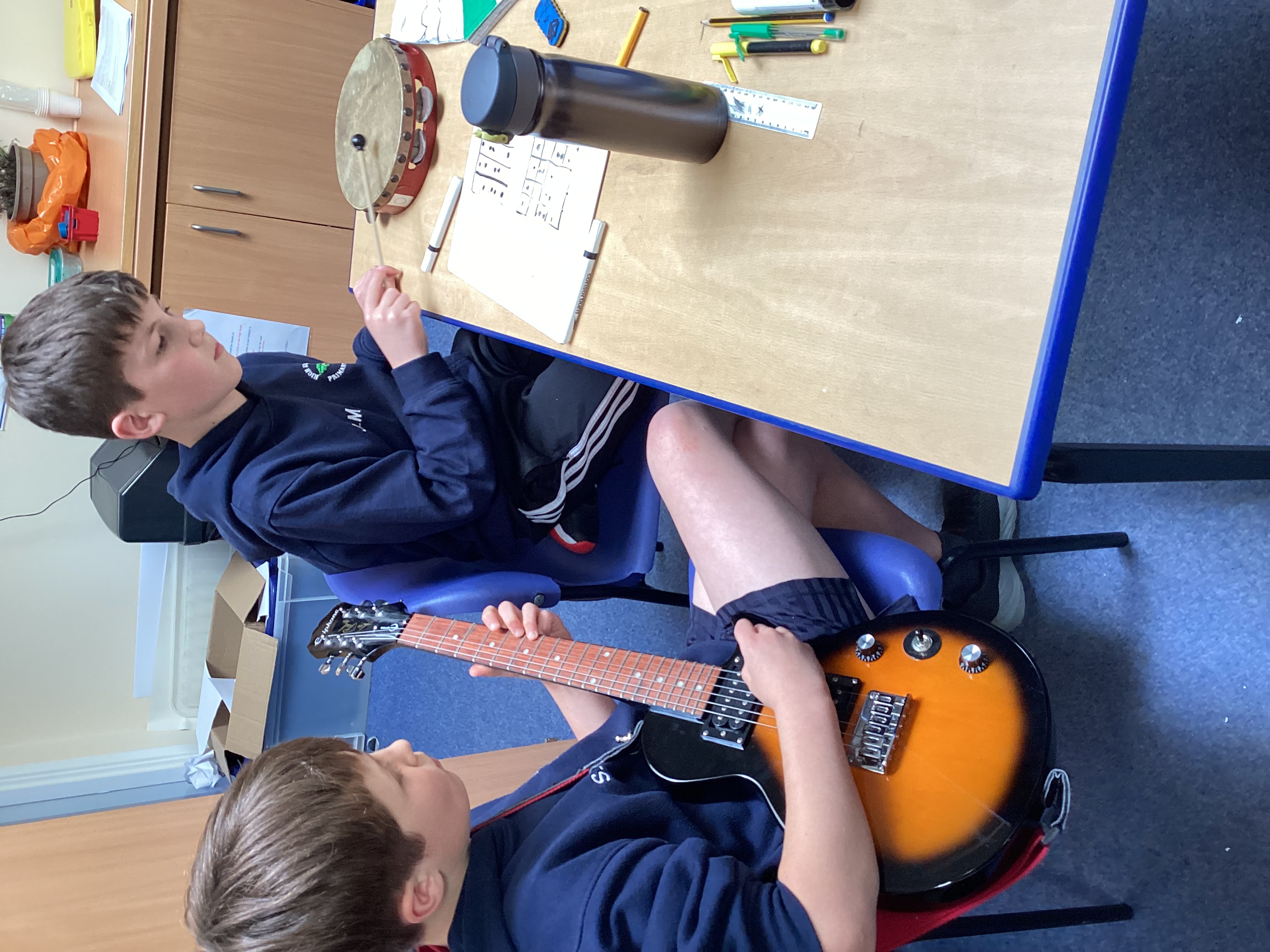Intent
What does Music look like at High Ercall?
As stated in the 2021 Model Music Curriculum, ‘music connects us through people and places in our ever-changing world. It is creative, collaborative, celebratory and challenging’. At High Ercall, we want music to be approached with this in mind, linking with our key drivers and 5Rs: to promote positive learning through building resilience while creating opportunities for active learning and diversity. We believe that as music reflects the culture and society that we live in, so the teaching and learning of music should reflect this.
The intent of our Music curriculum is to:
At High Ercall, we want to make music an enjoyable and fun learning experience, through whole school singing, ensemble playing, experimenting with the creative process and through a love of listening to pieces of music, whether performed by peers or recorded. We encourage children to participate in a variety of musical experiences through which we aim to build the confidence of all children. We want our teaching to focus on developing the children’s ability to understand rhythm and follow a beat. Through singing songs, children will learn about the structure and organisation of music. We teach them to listen and to appreciate different forms of music across a wide variety of historical periods, styles, traditions, and musical genres. We want children to develop descriptive language skills in music lessons while learning about how music can represent different feelings, emotions and narratives. We also teach technical vocabulary such as volume, pitch, beat and rhythm and encourage children to discuss music using these terms.
All musical learning in our scheme is structured around the Interrelated Dimensions of Music: pulse, rhythm, pitch, tempo, dynamics, timbre, texture, structure and notation. These dimensions are at the centre of all our learning; they are musical building blocks. This is an integrated approach to musical learning where games, the interrelated dimensions of music, singing and playing instruments are all linked (spiral of learning). Over time, children can both develop new musical skills and concepts. They can re-visit established musical skills and concepts as they travel along the learning journey.
We want learning to take place through games where children are encouraged to explore and create. By providing opportunities, we want all children to create, play, perform and enjoy music. They can develop the skills to appreciate a wide variety of musical forms and to begin to make judgments about the quality of music. We believe that music plays an important part in bringing communities together.
Our curriculum has been built to include our key curriculum drivers:
- our school values, the 5Rs
- the role of active learning
- building our children’s understanding of diversity.
In their time at High Ercall, we ensure the children access a wide variety of music and well mapped out resources to support this broader development and disciplinary knowledge. In our curriculum we have also considered the journey of a child through the school, so that our curriculum is progressive even when a child remains in a class for 2 years. Each class has a two-year rolling programme for their Music curriculum.
What do we want children to be able to do by the end of Year 6?
As stated in the National Curriculum, by the end of Year 6, pupils should be developing a critical engagement with music, allowing them to compose, and to listen with discrimination to the best quality of live or recorded music.
The National Curriculum for music aims to ensure that all pupil should be encouraged to:
- play and perform in solo and ensemble contexts, using their voices and playing musical instruments with increasing accuracy, fluency, control and expression
- improvise and compose music for a range of purposes using the inter-related dimensions of music
- listen with attention to detail and recall sounds with increasing aural memory
- use and understand staff and other musical notations
- appreciate and understand a wide range of high-quality live and recorded music drawn from different traditions and from great composers and musicians
- develop an understanding of the history of music.
How will this support the children in lifelong learning?
It is essential that by the end of their time at High Ercall in Year 6, our pupils understand music with confidence and enjoyment in a range of musical genres, to use their knowledge and skills in any subject in their secondary education. It is also essential for us that our children have developed the knowledge of musical instrument, musical genres and an understanding of the dimensions of music.
Implementation
How is the curriculum for Music organised and how do we teach it?
Music is mostly taught as a discrete lesson at High Ercall. We plan on a 2 yearly rolling curriculum across the school. We plan as a whole staff and ensure that the progression of skills are built in from EYFS to Year 6. Children are taught the interlinking key concepts of technical, constructive, expressive pillars of progression.
Substantive knowledge focuses on developing children’s skills and knowledge required for them to develop as musicians. This is achieved through deliberate practice and allows children to develop and demonstrate fluency of knowledge. It involves learning about music across a range of historical periods, genres, styles and traditions, including the works of the great composers and musicians. Disciplinary knowledge in music is the interpretation on the interrelated dimensions of music and how this knowledge is used when singing, playing instruments, improvising and composing, to develop creative and original pieces and performances. Children work independently and collaboratively to interpret and combine the dimensions of music to create a specific and desired effect.
Music Scheme:
The Charanga scheme of work is followed from Reception to Year 6 to ensure a wide exposure to different genres of music, with lots of practical opportunities to explore and develop as musicians and singers. Music lessons are broken down into half-termly units with an emphasis on musical vocabulary while allowing children to talk about pieces of music using the correct terminology. Each unit of work has an on-going musical learning focus with lessons usually following a specific learning sequence:
- Listen and Appraise
- Musical Activities (including pulse and rhythm)
- Singing and Voice
- Improvisation / Composition
- Perform and Share
Each lesson recaps prior learning through repetition of music and continues to build on this prior knowledge. Children are encouraged to re-listen to music and retrieve specific facts such as instrument use, genre and beat. This ensures a progression of knowledge and key concepts in each year group. Our school also has whole class ensemble teaching across KS2, where children are taught a musical instruments (Ukulele for 2022-2023). These lessons incorporate teaching musical notation, singing, improvisation, performing and evaluating.
Alongside our curriculum provision for music, pupils in KS2 can participate in additional 1:1 music teaching to learn a musical instrument with a peripatetic teacher. Our peripatetic music teaching is organised by the Local Education Authority. Instruments in the past have included the guitar, piano, keyboard, saxophone, and violin. Pupils that learn a musical instrument can sit examinations and perform at our carol concert, assemblies, and other events.
Performance is at the heart of musical teaching and learning and all pupils participate in a key stage performance: a nativity performance for Key Stage 1 at Christmas, Christmas carols in KS2 and an end of year performance from some of KS2 in July. Pupils also take part in Harvest assemblies, singing assemblies and pupils from reception to year 6 perform at our annual carol concert at our local church. Pupils who are confident are also encouraged to take on solo, small ensemble, and harmony performances. Parents are invited and welcomed to watch these performances, whether at school or outside of school. Our key stage 2 pupils attend a professional performance at one of our local theatres to experience how musical performance can be an engaging and fulfilling activity. This year, our school Choir has taken part in Young Voices.
Children with SEND
We believe that all learners should primarily access the first quality teach and be immersed in class discussions during Music lessons. Therefore, SEND learners access the same learning as all other children but will be given further support, adapted outcomes and a tailored approach to suit each individual’s needs. Strategies used to support our SEND learners include:
Examples of this include:
- Pre-teaching vocabulary such as the dimensions of music
- Providing ear-defenders or sensory breaks when a child is sensitive to volume
- Differentiating the expectations of sheet music, eg. Using shapes instead of notations
- Offering a range of musical instruments, including percussion to allow each child to have a musical role.
This is monitored by our SENDCO - Sarah Roberts - and parents are fully engaged and involved.
Impact
How do we review learning in Music?
At High Ercall, we use observations to assess children’s work in music by making informal judgements during lessons. We talk to pupils about their learning, what they particularly remember, to assess their use and understanding of musical terms. Children are encouraged to record and assess their own and other’s work/performances to enhance their understanding. This takes place through recorded performances, live performances to the class, school and wider community. Formative assessments are made against statutory end of key stage objectives. Assessments are recorded in the pupils’ end of year report.
All of our staff, senior leaders and governors are involved in measuring the impact of our Music curriculum in differing ways.
What do children say about Music at High Ercall:
'I love the ukulele and I have learnt all about the frets and strings and i can play lots different notes. I got a Ukulele for Christmas so I can play at home!' - Year 3 pupil
'The experience was amazing (Young Voices) just to listen to all the children in the arena singing. The feeling in my heart when we sang Message was all warm and tingly' - Year 6 pupil
'I really like learning new songs in Music and it is really fun to make up my own songs on the Glockenspiel' - Year 2 pupil
How do we review and assess learning in Music?
We assess children’s work in Music by making informal judgements as we observe them during lessons, using a mind map at the beginning of a lesson to recap prior learning and with the use of ‘quick quizzes’ for assessment of fact retrieval. An assessment is recorded in the pupils’ end of year report. Formative assessments are made against statutory end of key stage objectives.
Monitoring and evaluation could include:
- Lesson observations
- Evaluation of the impact of staff professional development
- A review of medium-term planning
- Talking to pupils and parents about learning in Music
- Governor review trails to evaluate the impact of the curriculum - this could be reviewing the website or the curriculum offer, talking to staff and pupils.
Also In This Section




